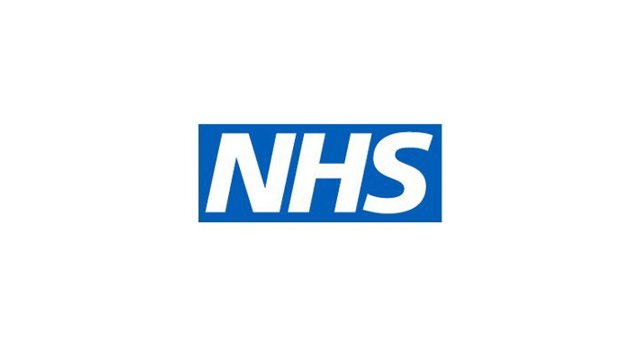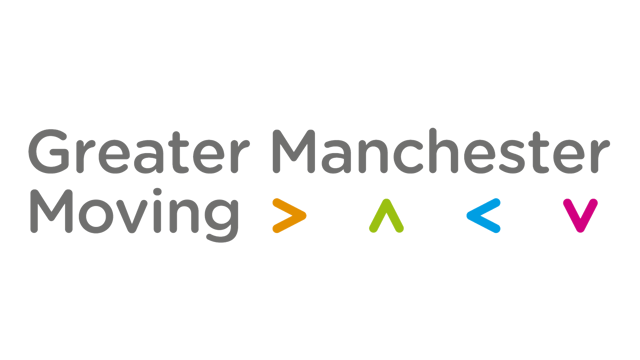GM Moving: Shaping the National Strategy - Event follow up
A summary of the event with Sport England, consulting with GM Moving partners on their new strategy
Share
At GM Moving we want to build a movement for movement. But we need your help.
Not only does moving more improve mental and physical health (which in turn reduces cost to the NHS), it is better for our environment, supports community development, helps local businesses, and improves educational attainment.
If you work in any of these areas we want to hear your views to get people moving more and contribute to happier, healthier lives. We want a big conversation about moving, and we want you to be a part of it. We started the conversation with a session to discuss the new Sport England strategic framework, and to gather your thoughts about what this means for the future of GM Moving. Below is a summary of the discussion.
This is just the beginning
As Sport England consult on their new framework, we wanted to set out our vision for our future work together and held an event to understand what the role of GM Moving would be in light of Sport England’s new framework. We were joined by Tim Hollingsworth (CEO) and Naomi Shearon (Strategy Lead) from Sport England and a range of participants from community organisations, local authorities, the NHS and private companies.
Elements from the strategy that could be taken forward or improved upon.
With such a diverse group of people, it was encouraging to see such variety in what people believed the strengths of the new framework to be.
In terms of the process taken by Sport England, there was positive feedback about Sport England’s genuine interest in collaborating with new and existing partners, and for creating an open space for learning and feedback to be shared back with Sport England. There was an appetite from those attending to have a continual feedback loop, with outputs from the initial conversation captured and shared for comment.
There was also the reflection that people with lived experience should be included in the conversation, potentially through community navigators to act as brokers for this process. Some participants felt that GM Moving should be strengthening the link between community navigator into GM Moving and the Sport England strategy.
Taking a whole system approach was welcomed and supported, with participants pleased to see the focus on asset based approaches (identifying and mobilising the strengths of and within a community, rather than focussing on the problems or needs) and system approaches (considering a problem as a whole, not just in part, with a need to work collaboratively across sectors).
Some sectors/agendas were felt to need strengthening in the framework, for example the role of commercial companies, education, and safety (for example, improving the physical environment of surrounding areas popular for physical activity).
Some thought the Sport England strategy could be improved by more of a focus on the whole system workforce development that will be needed to grow the movement, and the role volunteers can play in the future of sport and physical activity.
How do we play our part?
It was suggested that we might be more effective working across the system if we collaborated around the values and ways of working across the system; and there was widespread support for the aim of reducing inequalities and that genuine conversations with communities would enable this.
Participants felt they wanted more of a strategic direction, there was an appetite to help and be a part of the movement, but that more specific guidance about how to play a part was needed. For example, other organisations are willing to support and amplify messages where possible, but need a clear ask from Sport England and GM Moving. If coordinated, there is an opportunity to share consistent communications across a wider audience.
As the national and local movement belongs to everyone, there is a need to create the conditions so that everyone feels that they can have and lead the conversation in their place or part of the system. This can be thought of especially for community leaders who can reach parts of the community inaccessible to many. Collaborating efficiently is going to be key, as expected funding cuts take their toll. Having shared aims nationally and across the ten boroughs of GM might help to avoid duplication of national, regional and local funding streams, capacity and effort; allowing budgets to combine in order to achieve shared aims.
There was an acknowledgement that currently different sectors (e.g. the VCSE vector and sport and physical activity sector) talk about the same ideas, and have the same values and principles, but use different language. It was thought by some that a shared narrative would cut across sectors and link into other priorities, such as obesity with clear benefits for collaboration. Bringing in local partners more closely and consistently (such as Local Care Organisations and Primary Care Networks), would require GM Moving advocates to connect partners, or for leadership to commit and enable people across the system.
It was recognised that rather than requiring a critical mass of people to build a movement, instead we need to identify the right people in the right places who, when brought on board, would bring a much larger group of people with them (See Hayley’s blog on The Critical Yeast). To do this effectively, we need a clear understanding of what matters to others and how we can support them to redesign the system together. It is increasingly evident that GM Moving needs a simple narrative, with a clear call to action, which enables a diverse mix of people and organisations to join the movement.
What might help or get in the way?
The Covid-19 pandemic has the potential to accelerate the role of moving more and physical activity, as many people view their health differently, and there is an opportunity for the health and social care sector to engage with patients and talk about physical activity.
However, there is also a risk that after the pandemic people in power will revert back to transactional relationships. Some of the more transformative work has been put on hold through the Covid-19 pandemic, but there is a need now to ensure that these commitments are kept, and conversations (particularly with the health and social care system) are reignited.
We need to continue with engagement events like this one to share learning, thinking, challenges and pinch points, both with each other, and with Sport England. But we equally have to make sure that we have diversity in these conversations if we are to reduce the inequalities associated with activity. It was suggested that regular conversations with communities to sense-check priorities would ensure we are grounded in our approach, whilst also ensuring they’re benefiting from sharing their lived experience.
We need to be clear about what we value, and in turn what we decide to measure. To persuade more senior leaders across the system to be advocates for GM Moving, we need to evidence the benefits of shifting away from traditional KPIs and measurements and show the value in aligning priorities to provide greater benefit to communities.
We know that working differently takes time and courage. It’s not easy, but we must hold our nerve and continue building a movement for movement.
Watch a video of the event below
Latest News

Harnessing the benefits of physical activity across the NHS in England
Following the NHS England statement on physical activity, Manchester GP Dr Naddia Atif looks at how healthcare professionals can keep moving and the support they can offer their patients.

Our work on trans inclusion in physical activity
To mark Trans Day of Visibility (TDoV), we’re sharing the work our team are doing to help trans and non-binary people be more active.

Buy tickets for the GM Moving Conference 2025
Join us at the GM Moving Conference 2025, for a day of learning, leading and moving with inspiring speakers, workshops & networking to enable active lives for all.
